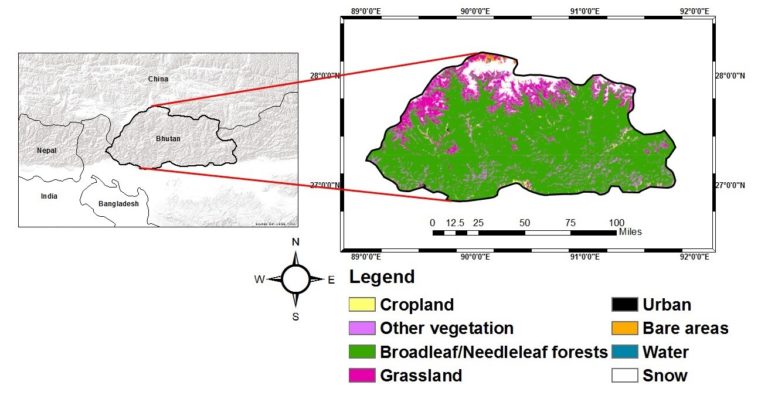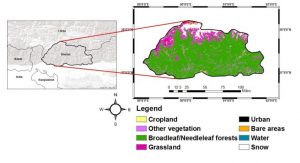Bhutan: The Only Carbon Negative Country
Bhutan, a small country that lies deep within the Himalayas between India and China, is often overlooked by the international community because of its low global GDP and political impact. It has a small population of about 750,000 and but a vast forest region. Despite economic challenges, Bhutan has put up a great effort to mitigate the climate change and become the only carbon negative country in the world with per capita emissions of just 0.8 annual metric tons and have kept their promise made at the 2009 Copenhagen climate conference to go carbon neutral. Even though the forest reserves act as mega carbon sinks and the rivers provide the country an emission-free power source but it’s the commitment of the people towards the environment which is helping them to achieve beyond their strength.

Gross National Happiness
Bhutan refuses to judge their success on GDP, instead believes that their national progress is well defined through the index Gross National Happiness. This index measures the prosperity by giving equal importance to non-economic aspects of well being instead of just focusing solely on economic indicators. In 2015, based on a survey it was estimated that 91% of its citizens are narrow, extensively or deeply happy. Hence Bhutan gives utmost importance to the forestry and its constitution requires forest to be maintained above 60% of its original cover. In 2015 they created a world record by planting nearly 50,000 trees in one hour. The country is also increasing its share of renewables, by exploring wind, biogas and solar. Also, the country is working hard through ‘Green Bhutan’ and ‘Clean Bhutan’ campaign to enhance their GNH index.
Agriculture
More than half of the population are involved in agriculture and forestry department and it is aiming to develop organic agriculture by 2020 and zero-waste agriculture by 2030. Developing these practices is Bhutan is relatively easier because of already existing practices of using fewer agrochemicals and more of natural fertilizers. To reach their goals it is offering many free training sessions to farmers on organic farming practices, encouraging low waste farming and use of compost.
Hydro-Power
Along with a vast forest region, Bhutan is also blessed with glaciers and rivers. Hydropower is the country’s major source for renewable energy and wealth. Bhutan has the potential to develop 30,000 MW of power out of which only 5% is utilized. The government plans to develop 10,000 MW of power by 2020 and export 80% of it to India.
Transportation
Although the emissions from industrial and transport sector are very low in Bhutan, currently it is seeing an increasing trend. Hence, instead of just relying on the forest for sequestration of carbons the country is adopting many measures such as:
- Raising the vehicle and fuel price to lower the number of vehicles on the road.
- Applying tax waivers to eco-friendly and fuel-efficient buses and taxis.
- Encouraging the use of private electrical vehicles.
- Providing electric trains in the cities.
- Improving pedestrians’ facilities such as cycling and walking ways.
Climate Change
Even though the country is working very hard in preventing CO2 emissions, but unfortunately it is still one of the most vulnerable countries to climate change. These climate change impacts can potentially derail Bhutan from the path of sustainable development. Some of the key resources, like agricultural and forest lands, mountains are also very vulnerable to threats causing flash floods, windstorms, forest fires etc., Its regenerative water supply which is pivotal to the country’s economy is also under threat of global warming. But sadly, they have done nothing to be affected like this. Hence it is the responsibility of every country to fight against the climate change so that the countries like Bhutan won’t have to pay for it.
References
Arvid Kiran. (2018, July 12). Retrieved from India Today: https://www.indiatoday.in/education-today/gk-current-affairs/story/bhutan-worlds-only-carbon-negative-country-1261119-2018-07-12
Mark Tutton. (2018, October 11). CNN. Retrieved from CNN Website: https://www.cnn.com/2018/10/11/asia/bhutan-carbon-negative/index.html
Mellino, C. (2016, March 19). Eco Watch. Retrieved from Eco Watch Website: https://www.ecowatch.com/this-country-isnt-just-carbon-neutral-its-carbon-negative-1882195367.html
Munawar, S. (2016, July). Bhutan Improves Economic Development as a Net Carbon Sink.

